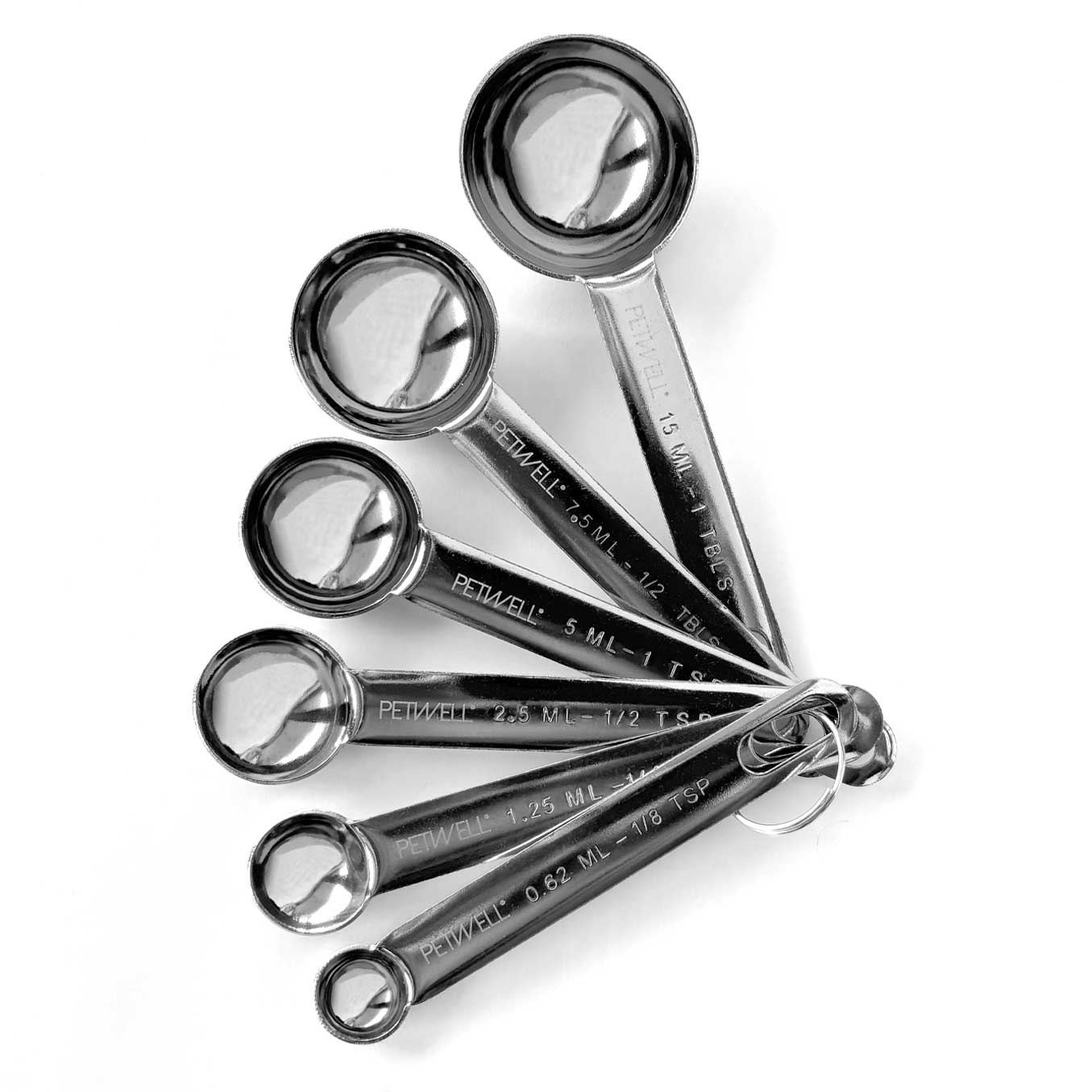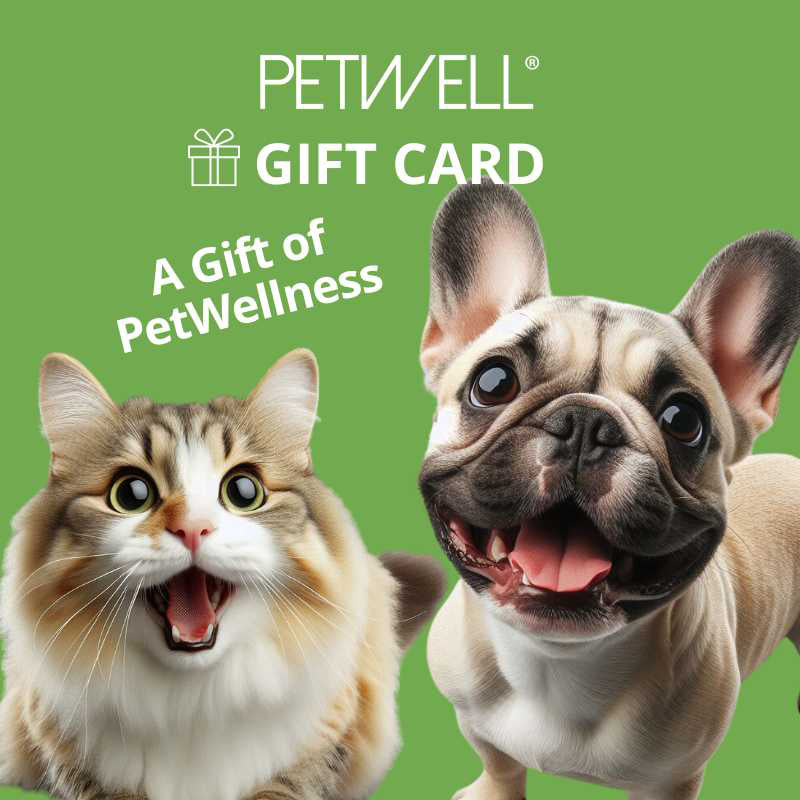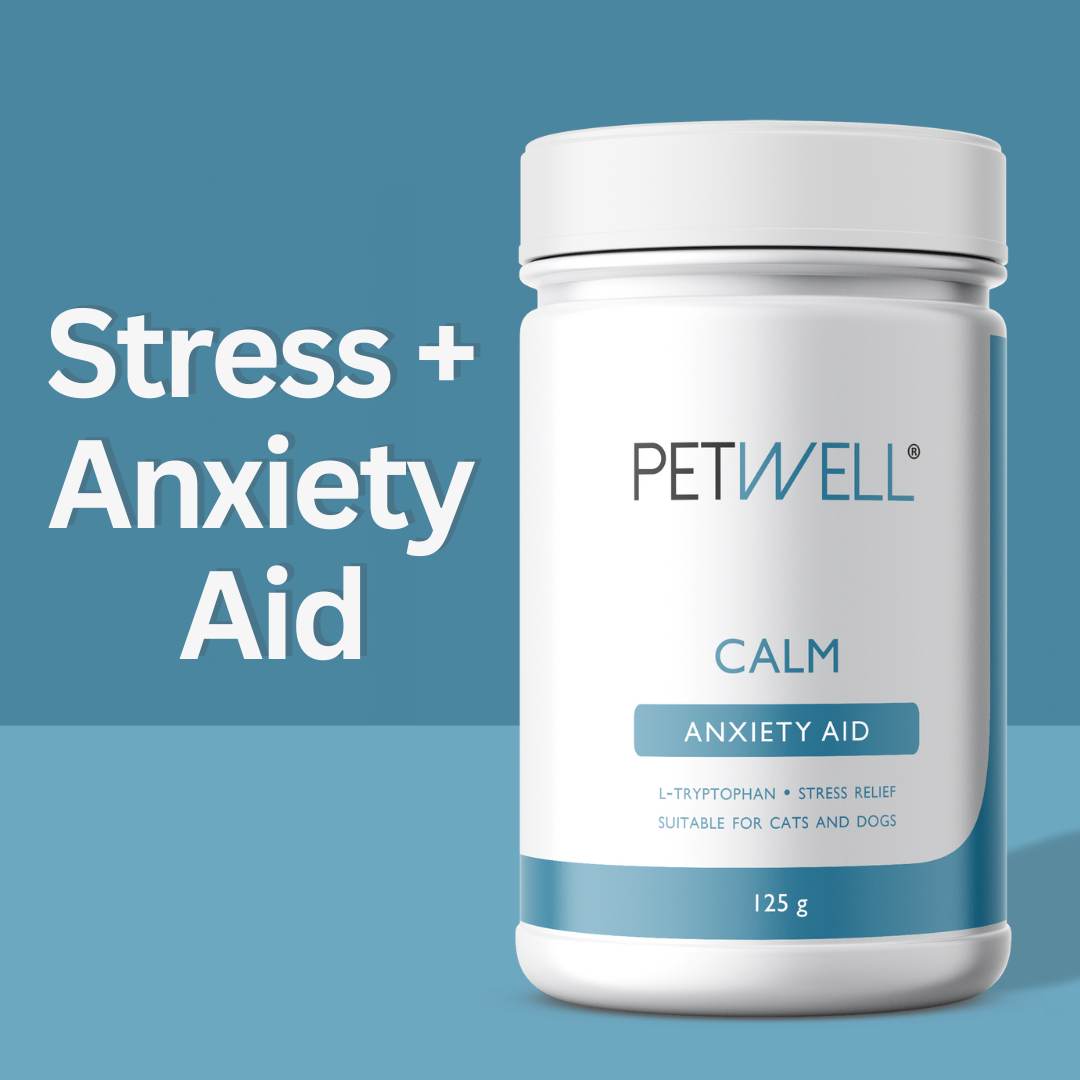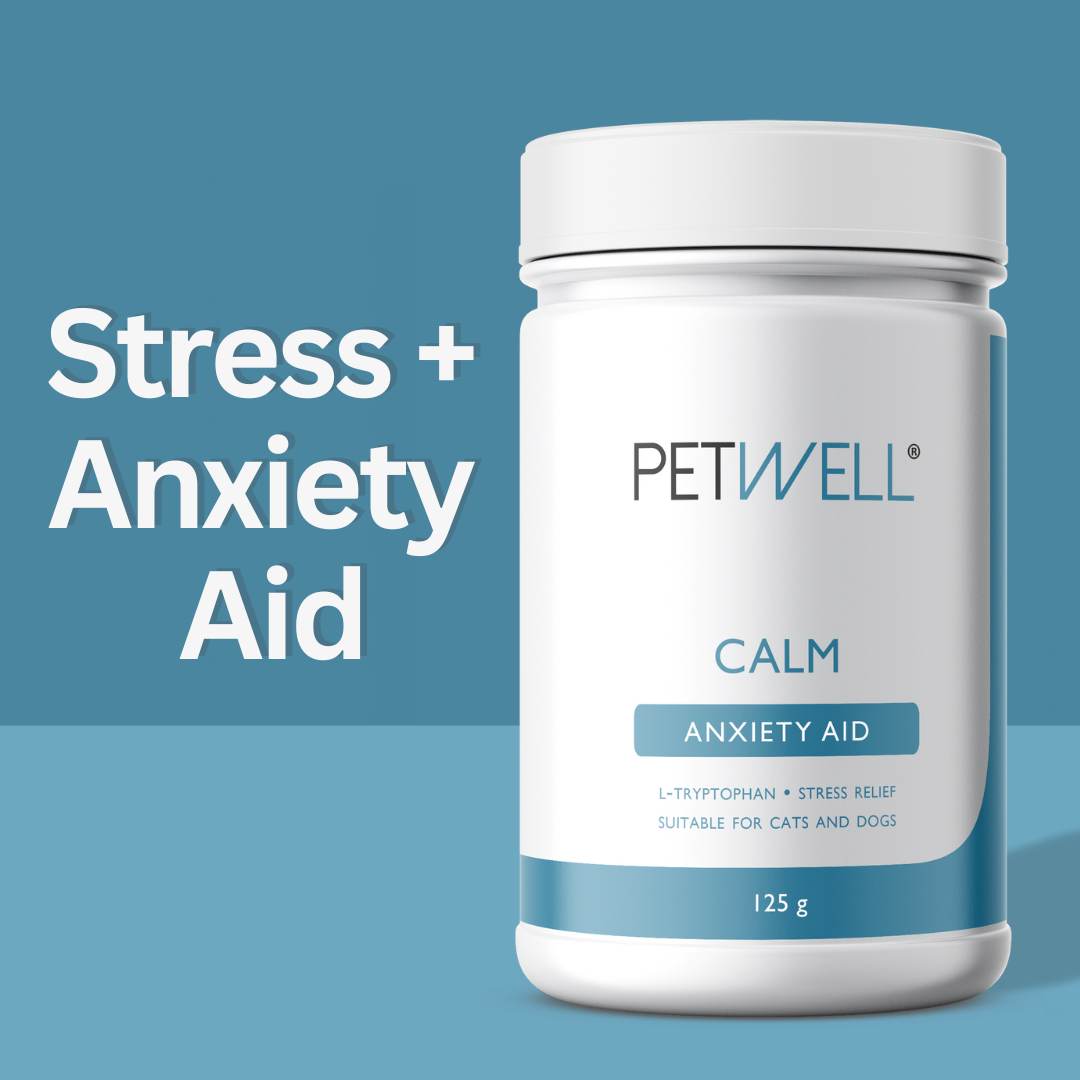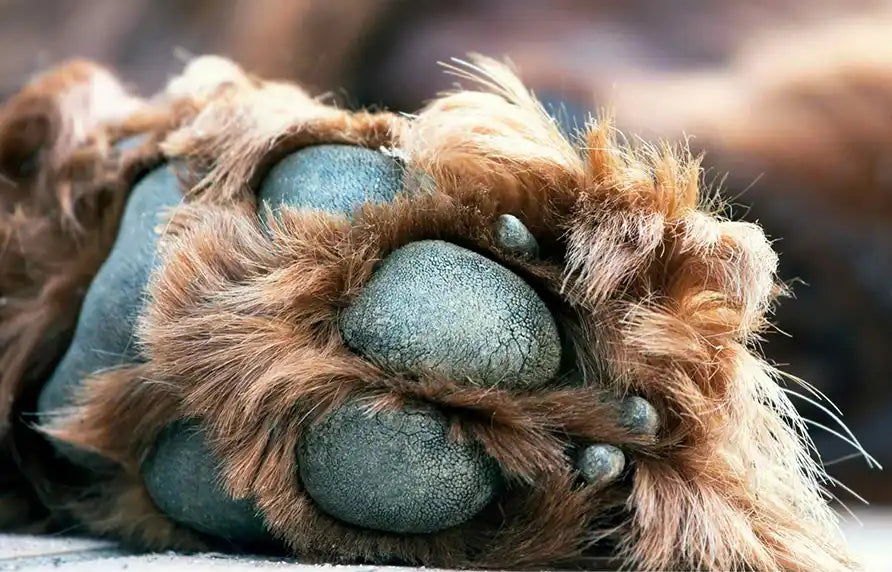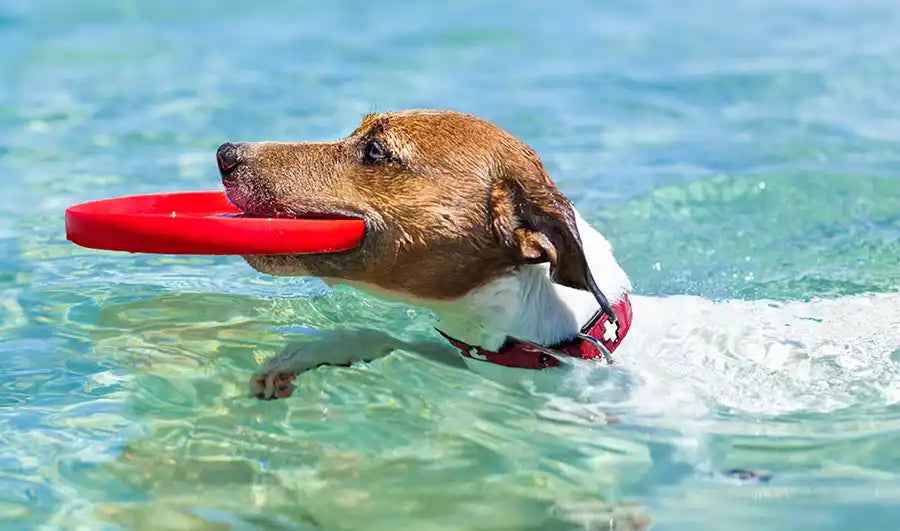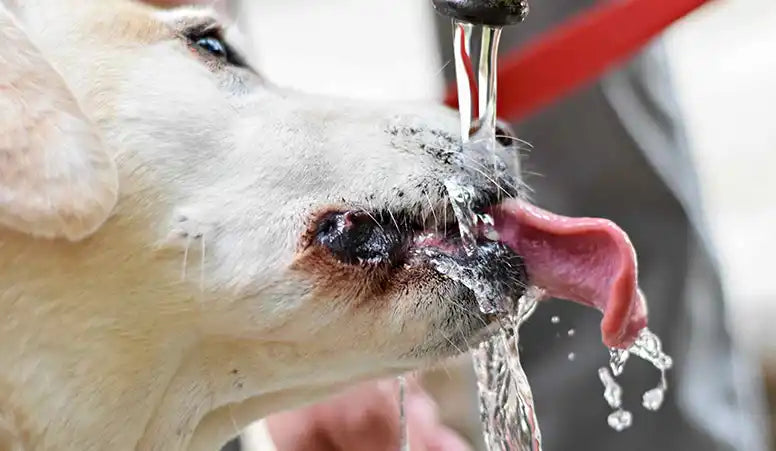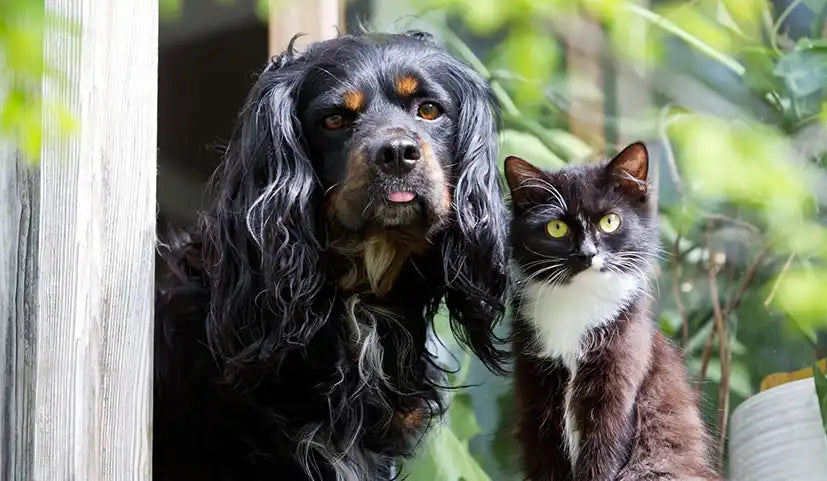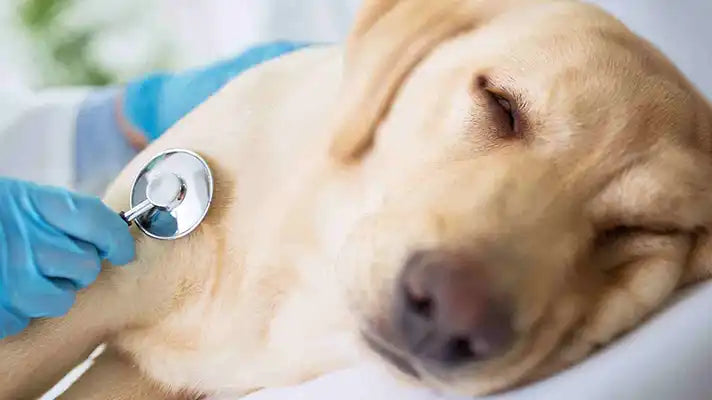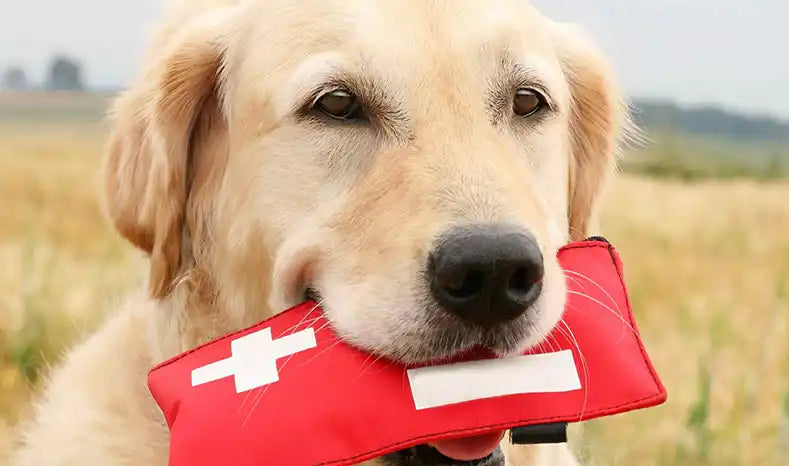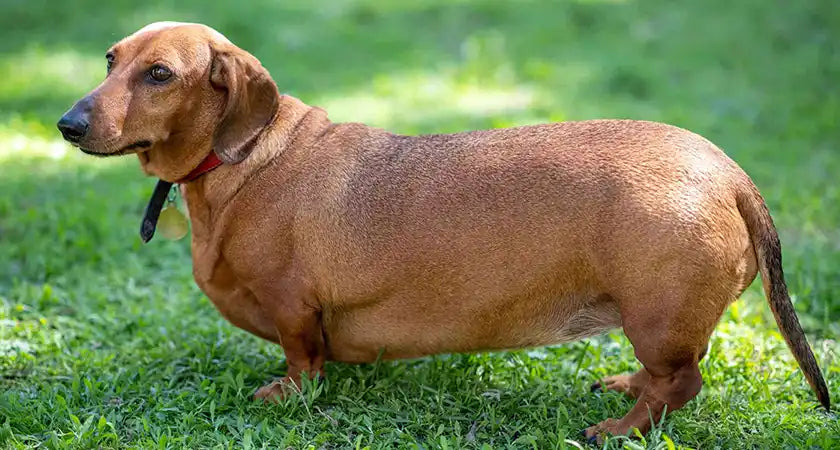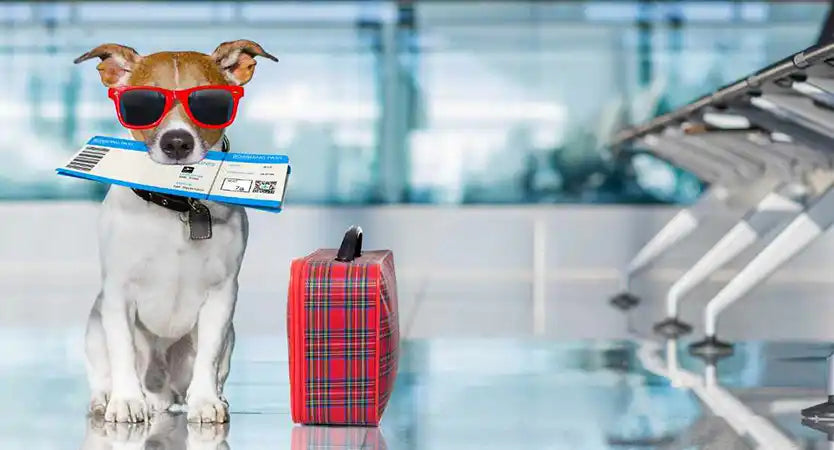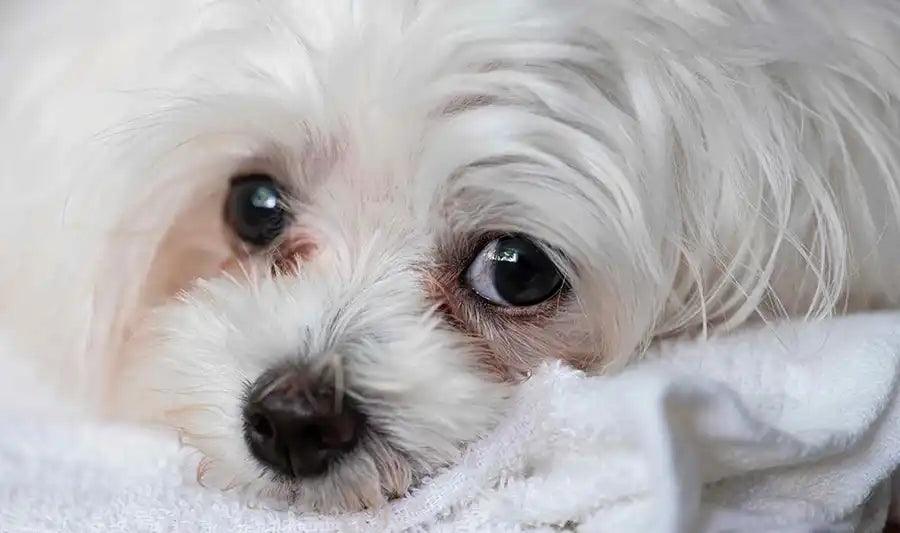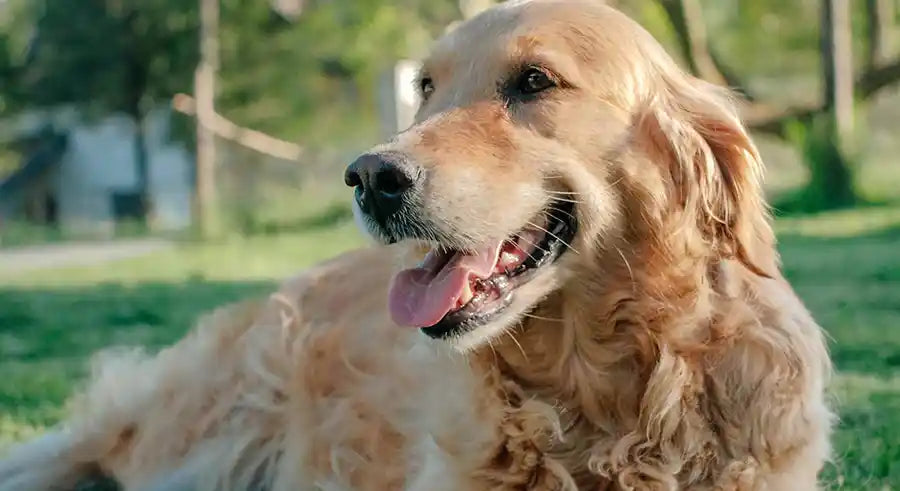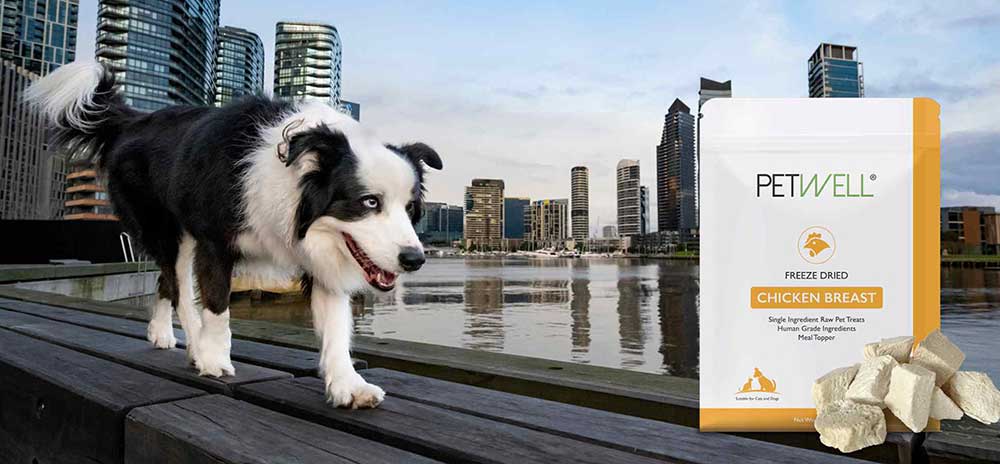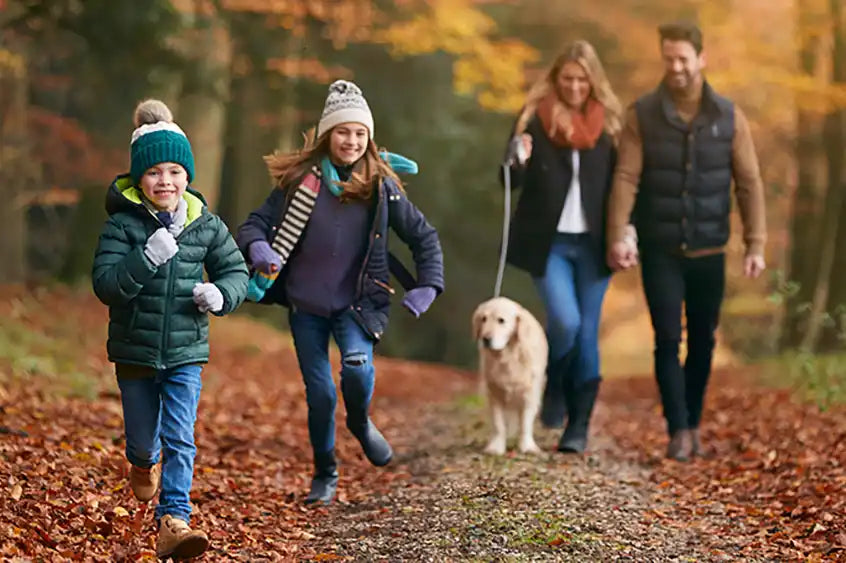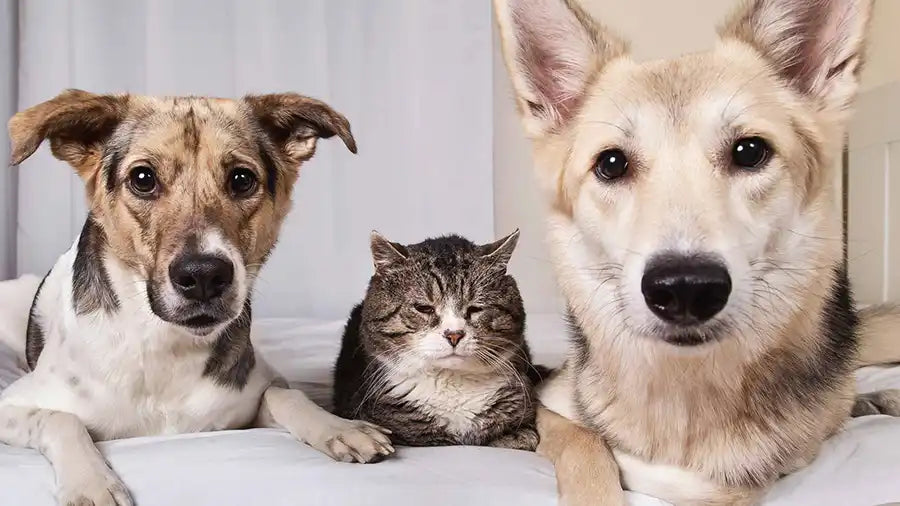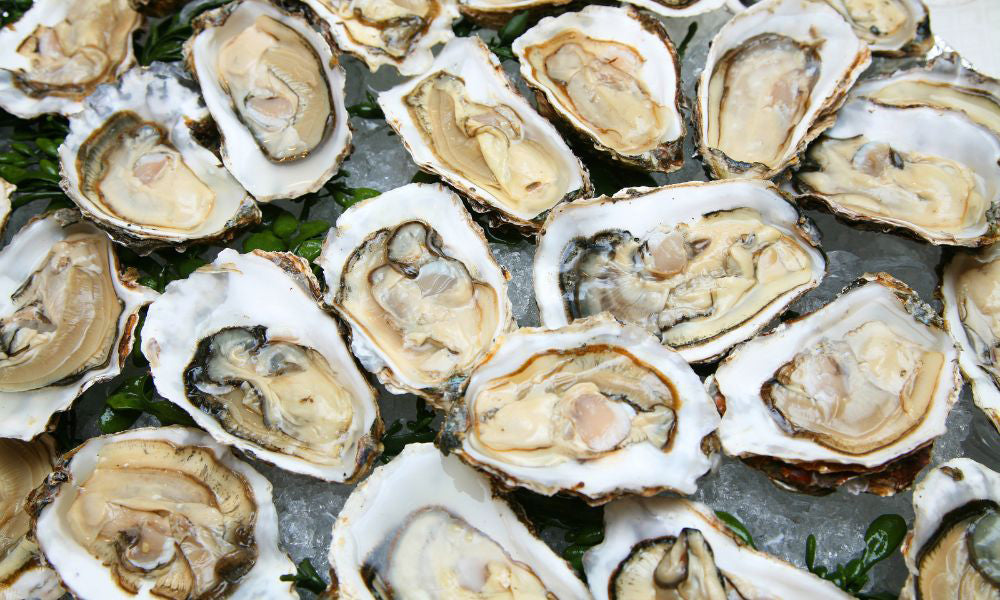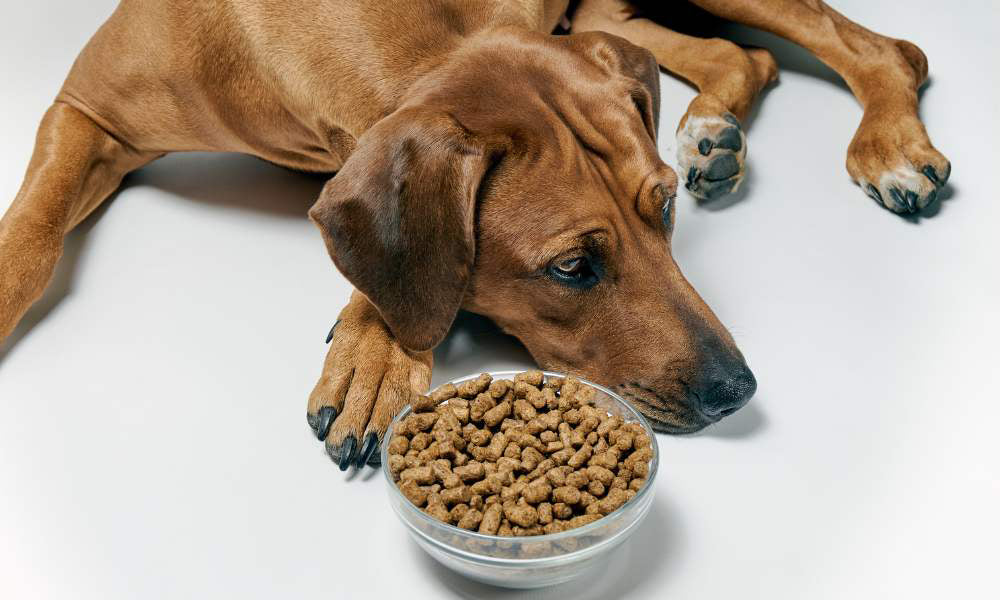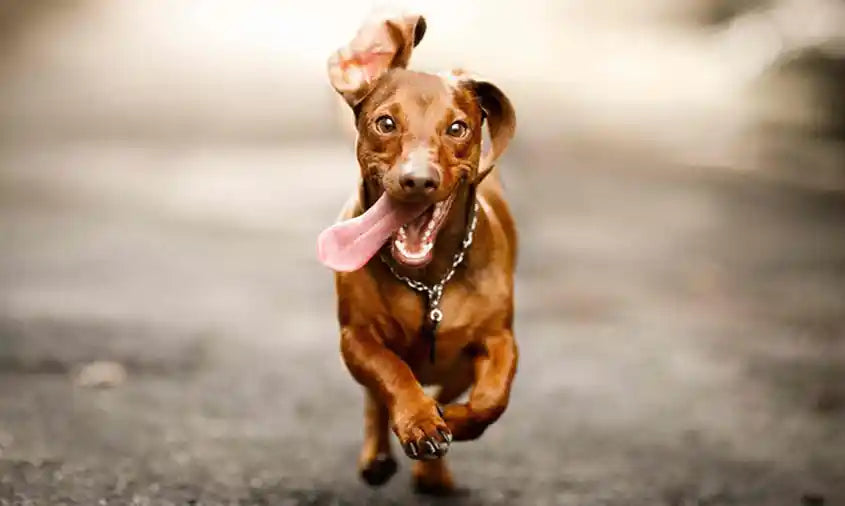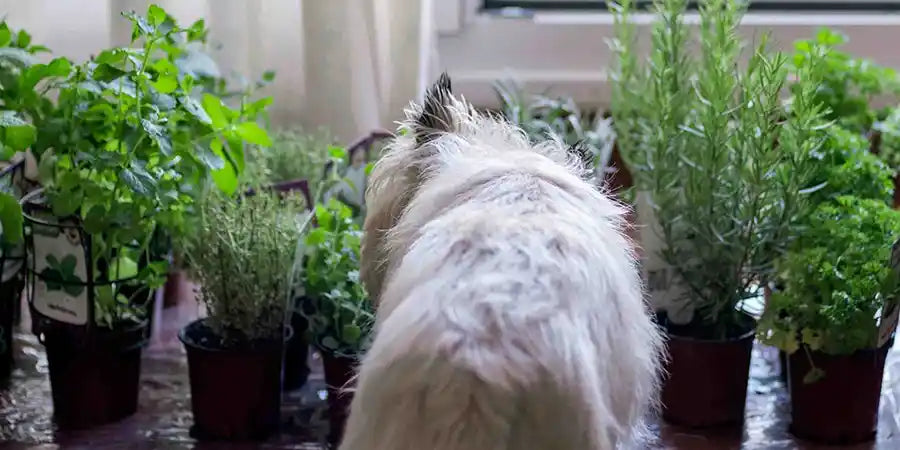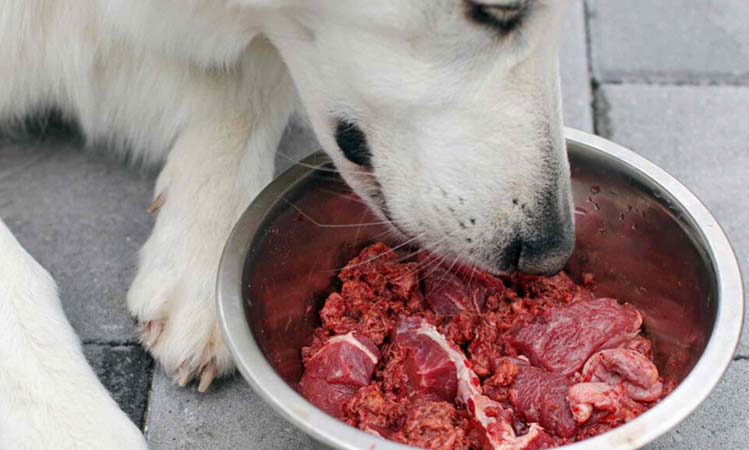If you’ve ever found yourself thinking “Why is my dog suddenly so clingy?” or noticed growling, sulking, or pushy behaviour when another dog, person, or baby enters the picture, you’re not imagining things.
Do dogs get jealous?
Yes. Recent studies on dog behaviours show that dogs do experience jealousy. Dogs can experience jealousy, especially when they feel insecure or worried about losing your attention. Jealous behaviour in dogs usually shows up during changes like a new pet, baby, person, or routine, and it’s often driven by anxiety rather than “bad behaviour”.
Let’s unpack what dog jealousy really means, how to spot it early, and what you can do to help your dog feel calm, confident, and secure again.
Quick Take for Busy Dog Parents
- Dogs can feel jealous when their routine or relationship with you changes
- Jealousy often looks like clinginess, pushy behaviour, anxiety, or aggression
- Big life changes are common triggers
- With patience, structure, and the right support, most dogs improve
Do Dogs Really Get Jealous?
Short answer: yes.

Dogs are incredibly tuned in to us. They read our body language, notice shifts in attention, and pick up on changes in routine far quicker than we do. When something changes, a new dog, a baby, a partner, or even a new work schedule, dogs can feel unsure about where they fit.
Dogs can’t say, “I’m feeling left out.” Instead, they communicate through behaviour.
In most cases, jealousy is your dog saying: “I don’t feel secure or safe right now.”
What Causes Jealousy in Dogs?
Jealousy usually comes from disruption, not dominance.
Common triggers include:
- A new pet in the home - Suddenly your dog is sharing walks, toys, space, and most importantly, you.
- A new person moving in - Partners, housemates, or family members can quickly change household dynamics.
- A new baby - One of the most common causes. Less attention, new smells, and new rules can feel overwhelming.
- Changes to routine - Less walking time, shorter play sessions, or different work hours can leave dogs feeling unsettled.
Dogs thrive on predictability. When that disappears, insecurity can creep in fast.
What Are the Signs of a Jealous Dog?
Jealousy doesn’t look the same in every dog. Some dogs act out, others shut down.
Aggressive behaviour
Growling, snapping, lunging, barking, or biting, directed at people or other pets.
Aggression should always be taken seriously. Read more about Dog Aggression & Resource Guarding: Natural Solutions
Pushy or clingy behaviour
Forcing themselves between you and others, intense staring, whining, or demanding attention.
Toileting accidents
Stress-related accidents can happen even in fully toilet-trained dogs.
Performing tricks
A clever attempt to win your attention back when it’s focused elsewhere.
Resource guarding
Guarding food, toys, spaces, or even you. Pulling on the lead to remove you from interactions counts too.
“Naughty” behaviour
Chewing furniture, jumping, growling, or scratching, even being told off feels better than being ignored.
Leaving the room
Some dogs withdraw instead. Turning away or exiting the situation is still a stress signal.
Anxiety behaviours
- Excessive licking or chewing
- Yawning or panting
- Tail tucked, ears pinned back
- Pacing, drooling, or reduced appetite
Jealousy and anxiety often overlap. Read more about Dog Anxiety: Causes, Symptoms & Solutions
PetWell CALM Supplement
PetWell CALM is designed to support dogs during periods of emotional stress without sedating them or changing who they are.
It helps support:
- Emotional balance and nervous system regulation
- Stress responses linked to change and insecurity
- A calmer state that makes training more effective
CALM works beautifully alongside behaviour training by helping your dog feel settled enough to learn rather than reacting on edge.
Is Jealousy in Dogs Normal?
Yes. Jealousy is a normal emotional response for dogs, particularly during periods of change. It doesn’t mean your dog is dominant, spoiled, or “bad” it means they’re struggling to adapt.
How to Help a Jealous Dog Feel Secure Again
Jealous behaviour can feel unpredictable and stressful, but there are practical steps you can take.
If behaviour feels unsafe or is escalating, working with a qualified dog behaviourist is always recommended.
Bring Back the Basics
Training shouldn’t stop after puppy school.
Short daily sessions (5–10 minutes):
- Reinforce structure and predictability
- Build confidence
- Strengthen your bond
Focus on cues like leave it, go to bed, stay, and drop. Clear expectations help dogs relax.
CALM + TURKEY Functional Treats (High-Value Rewards)
For jealous dogs, timing and reward value matter.
PetWell CALM + TURKEY functional treats are ideal as:
- High-value rewards during training around triggers
- Positive reinforcement when calm behaviour is shown
- Support during introductions to new people, pets, or environments
Turkey is naturally palatable, making these treats especially effective when your dog is feeling unsure or distracted, and because the calming ingredients are built in, you’re reinforcing behaviour and emotional regulation at the same time.
❌ Don’t Accidentally Reward the Behaviour
Dogs don’t distinguish between positive and negative attention, attention is attention.
If your dog is being jealous and no one is at risk:
- Turn away
- Walk out of the room
- Stay consistent
This calmly communicates that jealous behaviour doesn’t work.
“Your attention, your voice, your touch are all to be prized, and it is only natural that a possessive dog would want them all for himself.” - Leslie Nelson
Jealousy Around Other Dogs
- Reward calm behaviour near other dogs
- Ask for a sit before greetings
- Treat dogs fairly, they notice
Walking dogs together and practising calm breaks mid-walk can help reinforce balance.
Jealousy Around People
Help your dog see new people as part of the pack:
- Involve them in walks or play
- Let them offer meals or treats
- Have them practise basic training
Reward calm behaviour generously.
Dogs and a New Baby

This situation needs extra care.
- Let your dog sniff baby clothes or blankets first
- Reward calm curiosity
- Keep your dog’s routine as consistent as possible
⚠️ Never leave dogs unattended with babies or toddlers.
If jealousy escalates, seek professional help early.
When to Seek Professional Help
Aggression is always your cue to act.
If your dog shows:
- Ongoing or escalating aggression
- Sudden personality changes
- Behaviour that feels unsafe
➡️ Have your vet rule out pain or illness
➡️ Work with an experienced dog behaviourist
Early support makes a big difference.
The PetWell Takeaway
A jealous dog isn’t trying to be difficult. They’re usually confused, overwhelmed, or unsure where they stand.
With patience, structure, and understanding, most dogs can regain their confidence, and your home can return to calm, happy balance.
Learn more about Dog Behaviour Problems & Natural Fixes
FAQ’s
What causes jealousy in dogs?
Common causes include new pets, new people, new babies, and changes to routine that reduce attention or predictability.
Can dog jealousy cause aggression?
Yes. In some dogs, jealousy can lead to aggressive behaviour if they feel threatened or overwhelmed. This should always be addressed early.
Is jealousy the same as anxiety in dogs?
They’re closely linked. Jealousy is often driven by underlying anxiety rather than dominance.
How do I stop my dog from being jealous?
Consistency, calm training, rewarding relaxed behaviour, and maintaining routines help most dogs. Professional support may be needed for more severe cases.
Will my dog adjust to a new baby or pet?
Most dogs can adapt with patience, positive reinforcement, and gradual introductions.
Should I punish jealous behaviour?
No. Punishment often increases fear and anxiety and can make jealousy worse. Calm redirection works far better.
When should I seek professional help?
If aggression appears, behaviour escalates, or you feel unsure, get help early from a vet or behaviourist.
Disclaimer: The entire contents of PetWell emails and website are not to be taken as medical advice. The team at Pet Squad Pty Ltd trading as PetWell encourages you to make your own pet health care decisions based on your research and in partnership with a qualified pet healthcare professional.
This article was prepared by the team at PetWell. Australia’s trusted provider of natural, human-grade pet supplements and freeze-dried treats for dogs and cats. Drawing on holistic animal behaviour insights and years of working with canine clients, PetWell champions kind, calm and scientifically informed solutions for every pet parent.
Posted By Ayda Hornak - Trained in Canine Psychology and Natural Animal Nutrition Care





